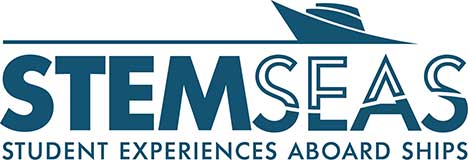Interviewer: Sam Radcliffe
Interviewee: Ethan, Marine Tech
Ship: R/A Sikuliaq
Date: October 6th 2018
Ethan is the Marine Tech aboard the R/V Sikuliaq. A research vessel that is a part of the U.S. Academic Fleet.
His educational journey started in San Diego at UC San Diego as he grew up in Southern California. He earned a BS in Mechanical Engineering and, due to his strong passion towards oceanography, immediately followed up with his MS in Applied Ocean Science. Ethan’s Masters project related to passive acoustics. He studied how wind/ice affects the ocean using sound. Sound is of special interest to Ethan; he explained how, by using sound, many interesting things can be accomplished. A simple example of this is SONAR, which is used to map the ocean floor as well as study the ocean current. After school Ethan began his career in oceanography.
Before taking his position as Marine Tech aboard R/V Sikuliaq, Ethan worked on 20+ ships as a part of various science crews. During this time he performed all sorts of oceanographic data collection using instruments such as sliders, mechanical robots that have the ability to slide above/below the water, and buoys. This work took Ethan many different places including Alaska where he has worked on and off since he was 21 years old (~12 years). He has been a full-time resident of Alaska for the last 5 years since the building of the R/V Sikuliaq began.
Ethan was given a special opportunity with the R/V Sikuliaq in that he was able to work on and be involved in the building process. This allowed him to customize his working environment.; a privilege that does not occur very often, if at all. The marine tech of a research vessel is the interphase between the science and the ship. The position does not take any specific qualifications, but does require plenty of experience sailing. With this position, Ethan spends 7-8 months onboard and another couple months working from his office on land. Although Ethan loves his work, it is getting harder and harder to be away from home.
Back at his home in Seward, Alaksa, Ethan enjoys all and every outdoor activity; ie snowboarding, hiking, backpacking. One of his favorite experiences is being dropped via plane into a remote area and braving the elements with his dog, Bounty.
The way Ethan sees it: data collection is a necessary field for the well-being and advancement of humanity and one that requires observation without bias. His favorite place of past travel is the arctic. The arctic has a special place in his heart as he has seen it change dramatically over the past 13 years; melted ice, fauna diversity, and temperature are a few of the many changes he has observed.
From this interview I have realized that it takes a vast amount of skill, technology, manpower, time and dedication to collect the data that many scientists and citizens take for granted.

